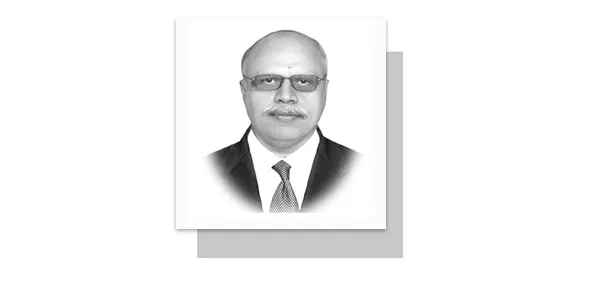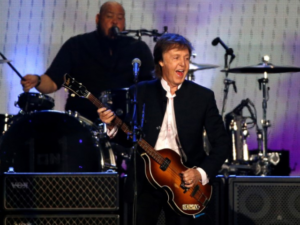
RECENTLY, the North Atlantic Treaty Organization (NATO) has expanded towards the Nordic region. Sweden, a Nordic country, officially became NATO’s newest member on 7 March 2024, upon depositing its instrument of accession to the North Atlantic Treaty. Notably, the Nordic nations — Sweden and Finland fervently applied to join the military alliance in May 2022, yet owning to the resistance posed by Turkey and Hungary, it delayed the process. After almost 30 years of close partnership with NATO, Finland, also a Nordic country, became an official member of NATO on 4 April 2023. By the entry of these two members, NATO has now become the largest military hub of 32 member states of the North Atlantic Community. In a sane policy response, Moscow — despite its traditional reservations over NATO’s enlargement— has shown a pragmatic calm over NATO’s Nordic expansion.
Historically put, both countries — Sweden and Finland have a long history of military nonalignment, and although they have gradually pursued closer cooperation with the United States and NATO — and politicians in both countries have long advocated membership —NATO accession was hardly seen as a pressing issue. Recently Hungary’s Parliament approved Sweden’s NATO accession, clearing the last hurdle before the historic step by the Nordic country whose neutrality lasted through two world wars and the simmering conflict of the Cold War.
So far as the procedure of NATO accession is concerned, it prompts that once all NATO members had ratified Finland’s Accession Protocol and Finland had accepted its accession to NATO, Finland became a de jure NATO member on April 4, 2023. As for NATO-Finland relations and cooperation, Finland provides personnel to the NATO-led peacekeeping force in Kosovo (KFOR). Further, Finland has participated in NATO Mission Iraq (NMI), NATO’s advisory and capacity-building mission in Iraq. Moreover, Finland participated in the enhanced NATO Response Force (NRF) in a supplementary role and subject to national decisions.
Additionally, Finland signed a memorandum of understanding on Host Nation Support which, subject to a national decision, allowed for logistical support to Allied forces located on, or in transit through, its territory during exercises or in a crisis. By now, as a member of NATO, Finland will be part of NATO’s collective defence and decision making and, thus, be covered by the security guarantees enshrined in Article 5 of the Treaty. Historically put, ‘’Sweden’s relations with NATO date back to 1994, when Sweden joined the Partnership for Peace. Since then, Sweden’s cooperation with NATO has gradually increased. On 7 March 2024, Sweden became a full member of NATO. As for Sweden’s NATO’s bid, Stockholm had pragmatically abandoned its non-alignment policy, keeping in view the greater safety within the North Atlantic Treaty Organization after Russia’s invasion of Ukraine in 2022.
As for the Kremlin policy vis-à-vis NATO’s Nordic expansion, Moscow has long opposed the expansion of NATO. However, President Putin has indicated he sees no threat to Russia if Sweden and Finland join the Alliance. President Putin intermittently said, “Russia will respond if NATO begins to establish military infrastructure in either of the two nations”. Russia has an 830-mile border with Finland. Russian President Vladimir Putin launched his invasion of Ukraine, in February 2022, the question of NATO membership was barely part of the political debate in Finland and Sweden.
Arguably, from a western point of view , the latitude-cum-pragmatic calm exercised by Kremlin over NATO’s Nordic expansion is due to the political expediencies as the western analysis posits: ‘’Russians can see that two countries with historically strong non-aligned policies decided to overturn those policies as a direct result of Russia’s invasion of Ukraine. To avoid acknowledging a setback, Putin needs to tell Russians that this new expansion of NATO is not a big deal — as long as NATO hardware stays out of Swedish and Finnish territories.’’ Nevertheless, a logical argument working behind this theory of Russia’s pragmatic silence suggests that it is Putin resilient response to the Russian public reckoning that the ongoing war in Ukraine is a real threat to Russia‘s sovereignty who might this apparent shift in Russia’s stated position Russians can see that two countries with historically strong non-aligned policies decided to overturn those policies as a direct result of Russia’s invasion of Ukraine.
Years beyond years, guarding the security of the western hemisphere remained the leitmotif of NATO-founded in 1949. On 4 April 2024, NATO celebrated its 75th anniversary. Recently, NATO has not been a club of 32 members, but it also becomes a cradle of fostering western relationship with more than 40 non-member countries and international organisations, called NATO partners. Whereas, doctrinally put, collective defence is at the heart of the NATO Alliance-the bedrock of security and harmony among its members. On the eve of this historic event, NATO’s Secretary General Jens Stoltenberg remarked that “NATO is bigger, stronger and more united than ever”.
However, some international strategists hold that the establishment of NATO with particular reference of its article 5 — fostering a concept of collective defence — was mainly indoctrinated to counterpoise the Cold War geopolitical asymmetries. They logically hold that with the end of Cold War accompanied by after the dissolution of the WARSAW (in February, 1991), there arises no justification of this article. All the more, Russian objections to NATO’s enlargement largely come from Russia -NATO pact in 1997 under the US President Bill Clinton’s era where Russia was given an assurance that NATO will not be enlarged towards the Russian borders. Nonetheless, after its eastward and northward — expansion, NATO has now become the biggest trans-regional military alliance, albeit motivating Russia to strengthen its land, naval and air forces in the Baltic Sea.
—The writer, an independent ‘IR’ researcher-cum-international law analyst based in Pakistan, is member of European Consortium for Political Research Standing Group on IR, Critical Peace & Conflict Studies, also a member of Washington Foreign Law Society and European Society of International Law. He deals with the strategic and nuclear issues.

